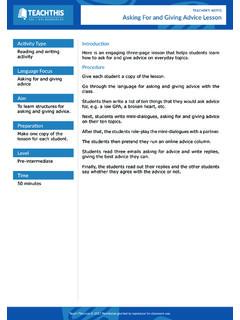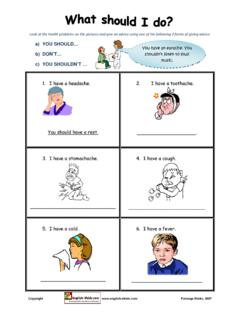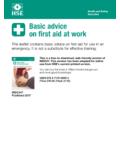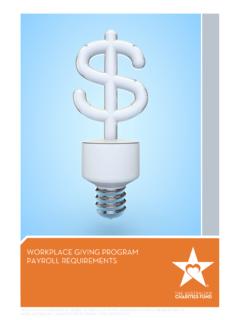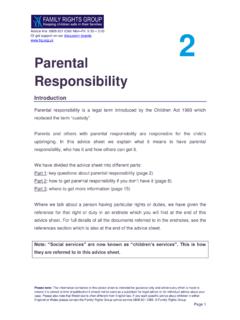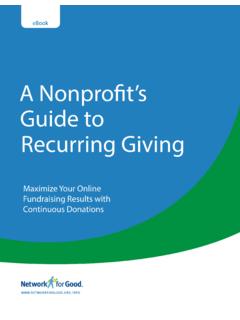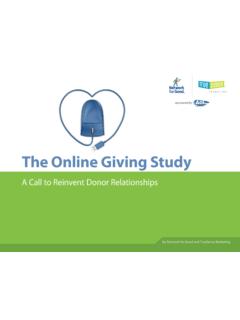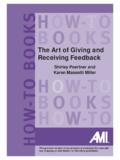Transcription of What is Science? - LU
1 1 what is Science? by Richard Feynman Presented at the fifteenth annual meeting of the National Science Teachers Association, 1966 in New York City, and reprinted from The Physics Teacher Vol. 7, issue 6, 1968, pp. 313-320 by permission of the editor and the author. [Words and symbols in brackets added by Ralph Leighton.] I thank Mr. DeRose for the opportunity to join you science teachers. I also am a science teacher. I have much experience only in teaching graduate students in physics, and as a result of the experience I know that I don't know how to teach.
2 I am sure that you who are real teachers working at the bottom level of this hierarchy of teachers, instructors of teachers, experts on curricula, also are sure that you, too, don't know how to do it; otherwise you wouldn't bother to come to the convention. The subject " what Is Science" is not my choice. It was Mr. DeRose's subject. But I would like to say that I think that " what is science" is not at all equivalent to "how to teach science," and I must call that to your attention for two reasons. In the first place, from the way that I am preparing to give this lecture, it may seem that I am trying to tell you how to teach science--I am not at all in any way, because I don't know anything about small children.
3 I have one, so I know that I don't know. The other is I think that most of you (because there is so much talk and so many papers and so many experts in the field) have some kind of a feeling of lack of self-confidence. In some way you are always being lectured on how things are not going too well and how you should learn to teach better. I am not going to berate you for the bad work you are doing and indicate how it can definitely be improved; that is not my intention. As a matter of fact, we have very good students coming into Caltech, and during the years we found them getting better and better.
4 Now how it is done, I don't know. I wonder if you know. I don't want to interfere with the system; it is very good. Only two days ago we had a conference in which we decided that we don't have to teach a course in elementary quantum mechanics in the graduate school any more. When I was a student, they didn't even have a course in quantum mechanics in the graduate school; it was considered too difficult a subject. When I first started to teach, we had one. Now we teach it to undergraduates. We discover now that we don't have to have elementary quantum mechanics for graduates from other schools.
5 Why is it getting pushed down? Because we are able to teach better in the university, and that is because the students coming up are better trained. what is science? Of course you all must know, if you teach it. That's common sense. what can I say? If you don't know, every teacher's edition of every textbook gives a complete discussion of the subject. There is some kind of distorted distillation and watered-down and mixed-up words of Francis Bacon from some centuries ago, words which then were supposed to be the deep philosophy of science. But one of the greatest experimental scientists of the time who was really doing something, William Harvey, said 2 that what Bacon said science was, was the science that a lord-chancellor would do.
6 He [Bacon] spoke of making observations, but omitted the vital factor of judgment about what to observe and what to pay attention to. And so what science is, is not what the philosophers have said it is, and certainly not what the teacher editions say it is. what it is, is a problem which I set for myself after I said I would give this talk. After some time, I was reminded of a little poem: A centipede was happy quite, until a toad in fun Said, "Pray, which leg comes after which?" This raised his doubts to such a pitch He fell distracted in the ditch Not knowing how to run.
7 All my life, I have been doing science and known what it was, but what I have come to tell you--which foot comes after which--I am unable to do, and furthermore, I am worried by the analogy in the poem that when I go home I will no longer be able to do any research. There have been a lot of attempts by the various press reporters to get some kind of a capsule of this talk; I prepared it only a little time ago, so it was impossible; but I can see them all rushing out now to write some sort of headline which says: "The Professor called the President of NSTA a toad.
8 " Under these circumstances of the difficulty of the subject, and my dislike of philosophical exposition, I will present it in a very unusual way. I am just going to tell you how I learned what science is. That's a little bit childish. I learned it as a child. I have had it in my blood from the beginning. And I would like to tell you how it got in. This sounds as though I am trying to tell you how to teach, but that is not my intention. I'm going to tell you what science is like by how I learned what science is like. My father did it to me. When my mother was carrying me, it is reported--I am not directly aware of the conversation--my father said that "if it's a boy, he'll be a scientist.
9 " How did he do it? He never told me I should be a scientist. He was not a scientist; he was a businessman, a sales manager of a uniform company, but he read about science and loved it. When I was very young--the earliest story I know--when I still ate in a high chair, my father would play a game with me after dinner. He had brought a whole lot of old rectangular bathroom floor tiles from some place in Long Island City. We sat them up on end, one next to the other, and I was allowed to push the end one and watch the whole thing go down. So far, so good.
10 3 Next, the game improved. The tiles were different colors. I must put one white, two blues, one white, two blues, and another white and then two blues--I may want to put another blue, but it must be a white. You recognize already the usual insidious cleverness; first delight him in play, and then slowly inject material of educational value. Well, my mother, who is a much more feeling woman, began to realize the insidiousness of his efforts and said, "Mel, please let the poor child put a blue tile if he wants to." My father said, "No, I want him to pay attention to patterns.
